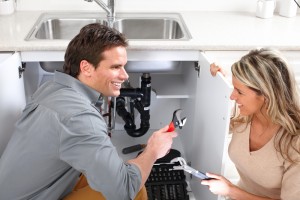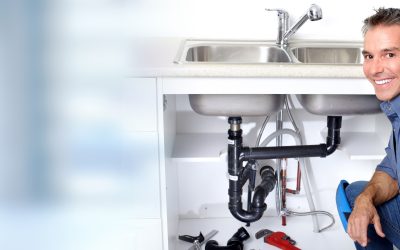Before you break out the wrench and cause potentially further harm to your sink, tub or toilet when plumbing problems arise in your home, take a moment to review some great plumbing tips:
Locate your plumbing pipes
Before you start driving nails and screws into your walls, make sure you know where your plumbing is located. A stud sensor is a great tool to locate pipes and wirings. If your basement or attic is unfinished, you can look for plumbing lines there to help you identify if there is a potential hazard waiting for you behind the wall. If a stud finder will not work and you cannot tell where the pipes run by a visual inspection, you may want to call a plumber in Anderson who can tell you where you can and cannot work.
Know proper codes
Do it yourself plumbing can be exciting and rewarding, but it is also fret with possible disaster. One is being unaware of the proper codes for certain types of plumbing installation. Things like the correct sizing of pipes, distances between plumbing fixtures and drain-waste vents. Although there are quite a bit of resources for you to read up on like the International Plumbing Code or the Code Check, your time may best be served by calling your local plumber in Anderson who can advise you on the specifics of the particular job you are working on.
Get a universal connection kit
Gas lines are considered a facet of plumbing and making sure the connections between appliances and gas pipes can easily go awry. It can seem that no matter how tight you make that connection, the appliance and gas line just don’t fit well. This could be a thread compatibility problem. When the pipe supplying the gas from the house does not match the connector fitting at the end of the flexible line going to the appliance, a universal connection kit can save the day. The kit comes with a several adaptors, one of which will make the transition from the pipe to the supply line.
Cut clean
Any good plumber in Anderson knows the importance of making clean pipe cuts when joining water or gas lines. For the DIY person, purchase professional tubing cutters, hacksaw blades, reciprocating-saw blades and a sturdy plastic pipe saw. The $20 plastic pipe saw works very well and reduces the amount of a burr because the teeth of the blade are little.
Before you solder or glue, remove any burrs and clean the pipe thoroughly. A plumber’s cloth works well on copper piping. Plastic pipes require a primer which will soften the plastic in order for the adhesive used to make a strong bond.
Plumber Anderson – If the scope of plumbing is beyond your capacity, Summers Plumbing Heating & Cooling can do the work and save you the heartache making the problem worse.



